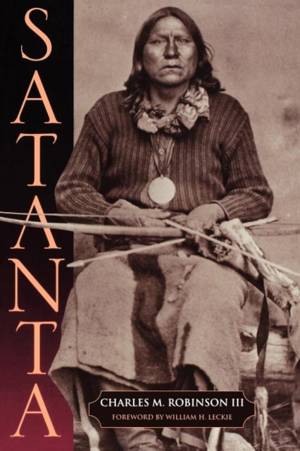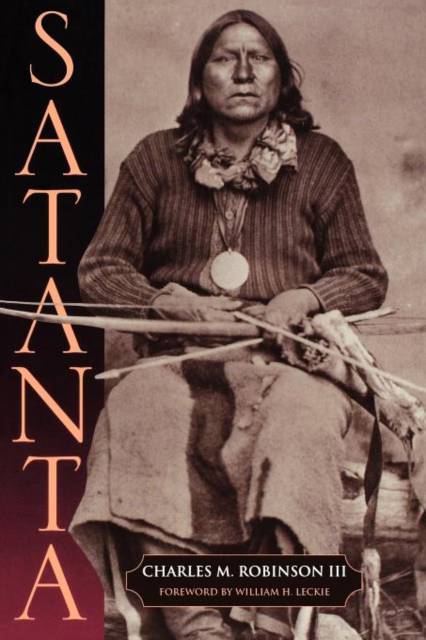
- Afhalen na 1 uur in een winkel met voorraad
- Gratis thuislevering in België vanaf € 30
- Ruim aanbod met 7 miljoen producten
- Afhalen na 1 uur in een winkel met voorraad
- Gratis thuislevering in België vanaf € 30
- Ruim aanbod met 7 miljoen producten
Zoeken
Omschrijving
In 1867 the New York Times wrote that "in cunning or native diplomacy Satanta has no equal in boldness, daring and merciless cruelty." Even in 1867, however, the Times was able to admit that there are "good points in this dusky chieftain which command admiration." Here at last is a brilliantly researched and written biography of the Kiowa chief who terrorized the western frontier but who fascinated the eastern press. The war leader of the Warren wagon train massacre was also the orator and diplomat who did much to publicize to the eastern establishment the 19th-century tragedies being inflicted upon the Indian tribes. From Satanta's birth ca. 1815 to his ignominious death in a Texas prison in 1878, award-winning biographer Charles M. Robinson III deals with Satanta, as both legend and man, within the context, heritage and history of the Kiowa culture as it came face-to-face with the encroachments of western immigration.
Specificaties
Betrokkenen
- Auteur(s):
- Uitgeverij:
Inhoud
- Aantal bladzijden:
- 254
- Taal:
- Engels
Eigenschappen
- Productcode (EAN):
- 9781880510568
- Verschijningsdatum:
- 1/01/1997
- Uitvoering:
- Paperback
- Formaat:
- Trade paperback (VS)
- Afmetingen:
- 154 mm x 229 mm
- Gewicht:
- 408 g

Alleen bij Standaard Boekhandel
+ 50 punten op je klantenkaart van Standaard Boekhandel
Beoordelingen
We publiceren alleen reviews die voldoen aan de voorwaarden voor reviews. Bekijk onze voorwaarden voor reviews.











